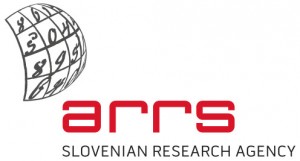Hate speech in contemporary conceptualizations of nationalism, racism, gender and migration
Background
Slovenia faces a significant increase and normalization of hate speech on social networks, accompanied by heated discussions on whether to prosecute or ignore it because the society is continuously riddled by a dilemma whether the restriction of hate speech is a violation of freedom of expression. A complete terminological confusion exists in delineating the concepts of socially unacceptable speech, offensive speech, hate speech and speech which is criminally prosecutable.
Problem definition
Research shows a rise in nationalist economic protectionism, Islamophobia, homophobia, hate speech and racist attacks on foreigners and minorities, but there are no in-depth analyses of the relationship between nationalism/racism, migration and gender in the generation of hate speech. The project seeks to answer the following research questions:
- How to study and define hate speech? Is hate speech any offensive act against a particular social group or does it specifically relate to subjugation of minorities perceived as the Other?
- How is hate speech generated and what is the role of the position and (dis)privilege in social hierarchy of the “source” and the “target” of hate speech?
- What is the explanatory model that connects the concepts of hate speech, racism, nationalism, gender and migration?
- Can the contemporary challenges of mass migration, global COVID-19 pandemic and the related upsurge in nationalism and anti-immigrant hate speech be addressed by alternative counter-narratives?
The overall research goal is to generate new knowledge and find new solutions, based on science.
Specific objectives are:
- To address the contemporary challenge of polarization of societies in Slovenia as well as in Europe that has increasingly become attributed by certain actors to immigration by analysing hate speech as a phenomenon inextricably linked to nationalism and racism. The objective is to situate hate speech within the nation-state’s nationalising practices.
- To produce the first comprehensive sociological study of the connection between hate speech, nationalism, racism and migration as gendered. Research aims to formulate an explanatory model that connects these concepts.
- To contribute to a clearer conceptualization of hate speech: who, how and why generates hate speech and what is the role of political elites and of the systemic reproduction of social inequalities. The project sets as a goal a formulation of hate speech definition.
- To enable a deeper understanding of interdependence between nationalist/racist constructions of reality and the modern occurrences of homophobia, sexism, hate speech, exclusion and intolerance towards the Other that accompany the (populist) discourses on migration. Specifically, this means uncoupling intersectional exclusions.
- To contribute to inclusive society based on equality and personal security of members of minorities, enabling each individual a full cooperation, self-realization and development of their own intellectual and social potentials.
Project team
Peace institute:
- Veronika Bajt: Project leader
- Vlasta Jalušič
- Neža Kogovšek Šalamon
- Zoran Fijavž
- Ana Frank
- Sergeja Hrvatič
Institute Jožef Stefan:
- Senja Pollak
- Nada Lavrač
- Matthew Purver
- Matej Martinc
- Andraž Pelicon
- Boshko Koloski
- Vid Podpečan
- Marko Pranjić
- Jaya Caporusso
Graphic author: Tomato Košir
Project execution
Research methods
The project defines four thematic case studies:
- Nationalism, racism and migration through the prism of gender and sexuality
- Counter-narratives of addressing hate speech and exclusion
- Significant Others, Dangerous Others and the construction of migration as a threat
- Computational analysis of online generation of Us/Them exclusion
The project applies a combination of quantitative and qualitative methods; key are policy analysis, survey, biographical narrative interview, focus groups, discourse analysis, content and thematic analysis, natural language processing.
Partners:
Funders:

